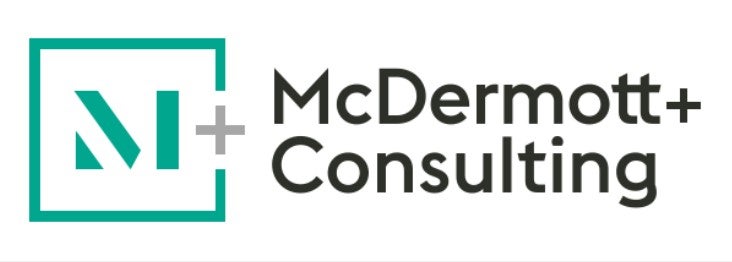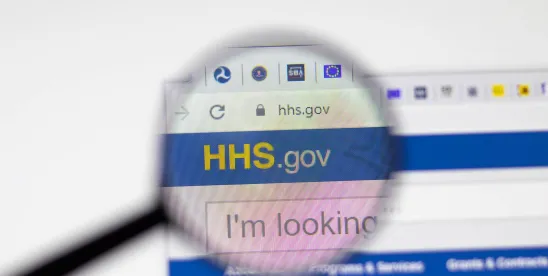THIS WEEK’S DOSE
- Congress continues a quiet recess. Lawmakers will be back on September 2, 2025.
- CMS releases final FY 2026 payment regulations. The Centers for Medicare & Medicaid Services (CMS) updated payment rates in the final fiscal year (FY) 2026 payment regulations for hospices, inpatient psychiatric facilities, and inpatient rehabilitation facilities.
- CMS launches Medicaid and CHIP oversight initiative. The agency seeks to ensure satisfactory immigration status for enrollees.
- US Department of Education releases PSLF proposed rule. The department proposes to limit employers that qualify for the public service loan forgiveness (PSLF) program.
- Administration takes action on pharmaceutical supply chain. President Trump signed an executive order to improve supply chain resilience.
- HHS establishes healthcare advisory committee. The application window to serve on the committee is open now.
- US Supreme Court rules on ability to terminate certain NIH grants. $783 million in National Institutes of Health (NIH) grants that the administration linked to diversity, equity, and inclusion initiatives and other administration policies could be impacted.
ADMINISTRATION
CMS releases final FY 2026 payment regulations.
- In the hospice wage index rule, CMS finalized a 2.6% increase in the hospice payment rate and a policy allowing the physician member of the interdisciplinary group to recommend admission to hospice care.
- In the Inpatient Psychiatric Facility Prospective Payment System (PPS) rule, CMS finalized a 2.4% payment rate increase and updates to the facility-level adjustment factors. CMS also removed four measures from the inpatient psychiatric facility quality reporting program.
- In the Inpatient Rehabilitation Facility PPS rule, CMS finalized a 2.6% increase in the inpatient rehabilitation facility payment rate and made several changes to the quality reporting program, including the removal of two quality measures and four social determinants of health standardized patient assessment data elements.
CMS launches Medicaid and CHIP oversight initiative. To ensure that enrollees in Medicaid and the Children’s Health Insurance Program (CHIP) are US citizens, US nationals, or have a satisfactory immigration status, CMS will provide monthly enrollment reports identifying individuals whose citizenship or immigration status could not be confirmed through federal databases, including the US Department of Homeland Security’s systematic alien verification for entitlements program. States will be responsible for reviewing cases and taking appropriate actions when necessary, including requesting additional documentation, adjusting coverage, or enforcing noncitizen eligibility rules.
CMS stated that it sent initial reports this week and all states will receive a report within a month. CMS will monitor progress on a monthly basis, and states are expected to “take quick action.”
US Department of Education releases PSLF proposed rule. The PSLF program provides student loan forgiveness to borrowers who work for qualifying government and nonprofit employers after making 120 monthly payments. Qualifying employers include hospitals and health systems. Under the proposed rule, beginning July 1, 2026, PSLF would only be available to employees of qualifying employers that do not engage in activities with a “substantial illegal purpose,” which the proposed rule specifies as including “chemical or surgical castration or mutilation of children” in certain circumstances. The department also proposes that “illegal discrimination” (defined as any violation of federal antidiscrimination law, but not state antidiscrimination law), “violating federal immigration laws,” and “supporting terrorism” would be disqualifying activities. Comments on the proposed rule are due by September 17, 2025.
Administration takes action on pharmaceutical supply chain. President Trump signed an executive order directing the US Department of Health and Human Services (HHS) to strengthen domestic pharmaceutical supply chains by stockpiling active pharmaceutical ingredients for critical medicines:
- Within 30 days, the Office of the Assistant Secretary for Preparedness and Response (ASPR) must identify “approximately 26” especially critical drugs and assess available funding to acquire a six-month supply of their active pharmaceutical ingredients (APIs), prioritizing domestic sources.
- Within 120 days, ASPR must prepare the strategic API reserve repository to begin receiving APIs and must fill it within 30 days of readiness.
- Within 90 days, ASPR must update the 2022 list of 86 essential medicines and develop a plan to source, store, and maintain APIs for those not covered in the critical drugs list. The plan must include a proposal and cost estimate for opening a second API reserve repository within one year.
In related news, the US Food and Drug Administration (FDA) announced the FDA PreCheck program, which aims to strengthen the domestic pharmaceutical supply chain by streamlining manufacturing construction. FDA will hold a public meeting on September 30, 2025, to discuss the program and additional strategies to overcome current onshoring challenges relevant to FDA authority.
HHS establishes healthcare advisory committee. In a notice, HHS and CMS outlined eligibility requirements and the application process for serving on the committee. Committee members will advise the HHS secretary and CMS administrator on:
- Developing policies to promote chronic disease prevention and management, in line with the Make America Healthy Again (MAHA) policy agenda.
- Identifying opportunities to reduce administrative burdens for providers and produce a regulatory framework focused on accountability and safety for improving patient health.
- Advancing a real-time data system to enable rapid claims processing, rapid quality measurement, and an improved standard of care.
- Improving the quality of the Medicaid program for vulnerable patients “outside of more funding for the current system.”
- Improving the sustainability and quality of the Medicare Advantage program through modernized risk adjustments and quality measures focused on improving health outcomes.
Applications are due within 30 days of the notice’s publication in the Federal Register. Read the press release here.
COURTS
US Supreme Court rules on ability to terminate certain NIH grants. In a 5–4 vote, the Supreme Court overturned a lower court ruling that declared the cancellations of $783 million in NIH grants as illegal. The administration had targeted the grants by noting the funding was tied to diversity, equity, and inclusion and other policy initiatives. The plaintiffs had argued that the administration’s actions violated the Constitution and the Administrative Procedure Act, but the majority ultimately ruled that the federal judge did not have the power to direct the government to make payments. The Supreme Court’s ruling on the NIH grants is not a final decision on the legality of the grant terminations but it means the administration can withhold the funding while the legal fight plays out.
QUICK HITS
- House Ways and Means chair highlights report on hospital urban-rural dual classification. In a press release signaling his interest in this policy area, Chair Smith (R-MO) highlighted a Health Affairs article that found that more than three-quarters of dually classified hospitals were nonprofit, including many large academic medical centers in metropolitan areas.
- HHS reinstates Task Force on Safer Childhood Vaccines. The task force will offer recommendations focused on limiting childhood vaccine adverse reactions and improving vaccine development, production, distribution, and adverse reaction reporting. The first formal report will be sent to Congress within two years.
- GOP Doctors Caucus calls for USPSTF overhaul. In a letter to HHS Secretary Kennedy, members alleged that the US Preventive Services Task Force (USPSTF) focuses too much on social issues. They urged HHS to mandate that USPSTF include relevant specialists when issuing recommendations for their field. They also called for full transparency in decision-making and a renewed focus on public health outcomes.
- Senate passes FDA funding. Before leaving town for the August recess, the Senate passed the FY 2026 funding bill for the FDA by a 87 – 9 vote. The bill provides $7 billion to the FDA. This is slightly higher than the version passed by the House Appropriations Committee, which included $6.79 billion for the FDA and is aligned with the president’s budget request.
- FTC holds listening session on lowering drug prices. The third and final Federal Trade Commission (FTC) listening session focused on key takeaways from the previous sessions. Speakers provided recommendations on ways to lower drug prices, including possible pharmacy benefit manager reforms, increased transparency in the industry, improved coordination between agencies, and strategies to address consolidation and vertical integration.
- HHS cancels mRNA research grants. HHS announced it will wind down 22 mRNA vaccine development activities conducted by the Center for the Biomedical Advanced Research and Development Authority. This includes cancellation of many private sector contracts and totals $500 million in projects.
- NIH releases guidance on AI use in research applications. The guidance states that NIH will not consider applications from principal investigators if they are substantially developed by artificial intelligence (AI). The agency will only accept six new applications from principal investigators each year.
- GAO finds NIH violated federal funding law. The US Government Accountability Office (GAO) report states that NIH violated the Impoundment Control Act by withholding federal funding that was congressionally appropriated for FY 2025. The report states that HHS must propose funds for rescission or propose other legislation to make changes to appropriations provided to NIH.
- HHS releases MAHA tracker. The “MAHA in Action” tool lists federal and state reforms aligned with the MAHA movement.
- CMS holds listening session on Medicare’s EDI cybersecurity controls. The listening session discussed efforts to modernize Medicare’s electronic data interchange (EDI) cybersecurity controls, which support the security and integrity of electronic transactions that physicians, suppliers, and other providers use to submit Medicare Part A and Part B claims.
- CBO releases additional OBBBA resources. The Congressional Budget Office (CBO) released three reports on the One Big Beautiful Bill Act (OBBBA), including a distributional analysis and estimates of the law’s deficit impact and statutory pay-as-you-go effects.
NEXT WEEK’S DIAGNOSIS
Congress has one more week of recess before it returns on September 2, 2025. The deadline to fund the government and extend expiring programs is September 30, 2025. The Check-Up will return on September 5, 2025.








 />i
/>i
